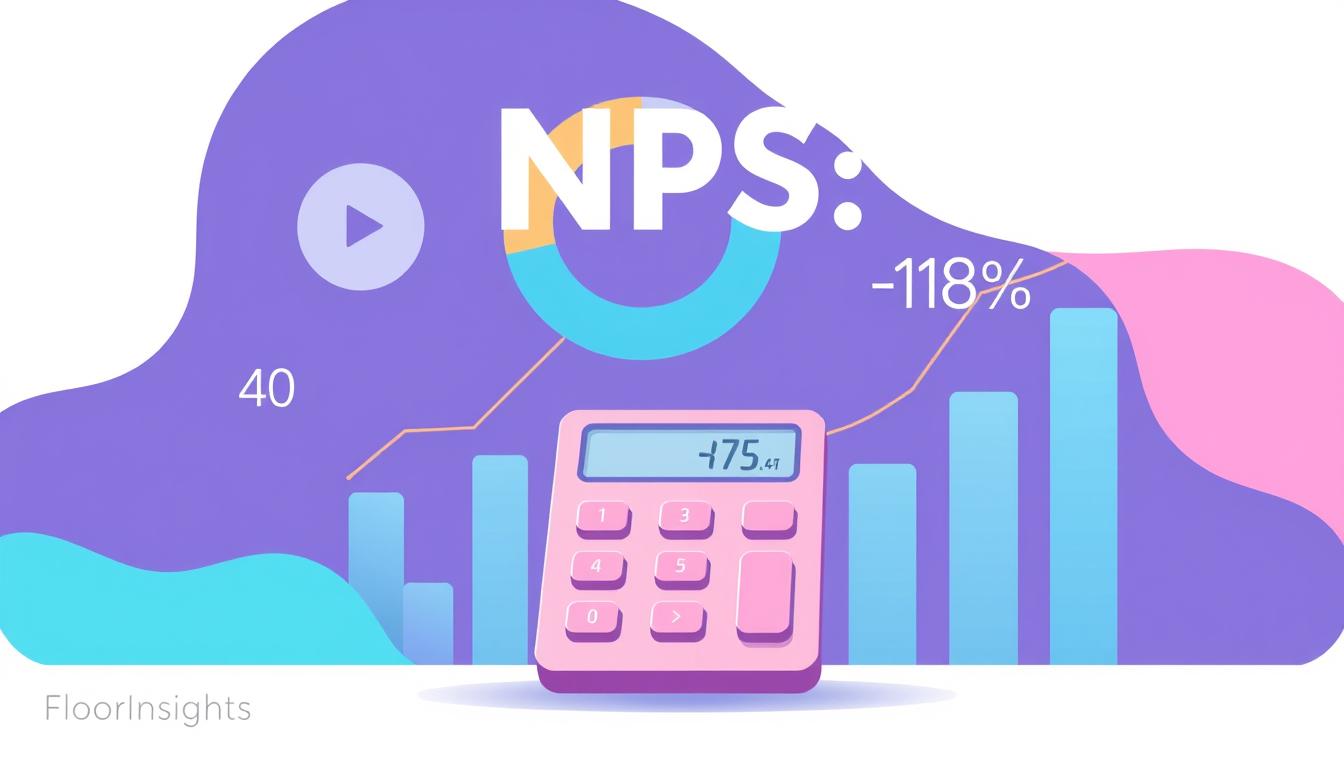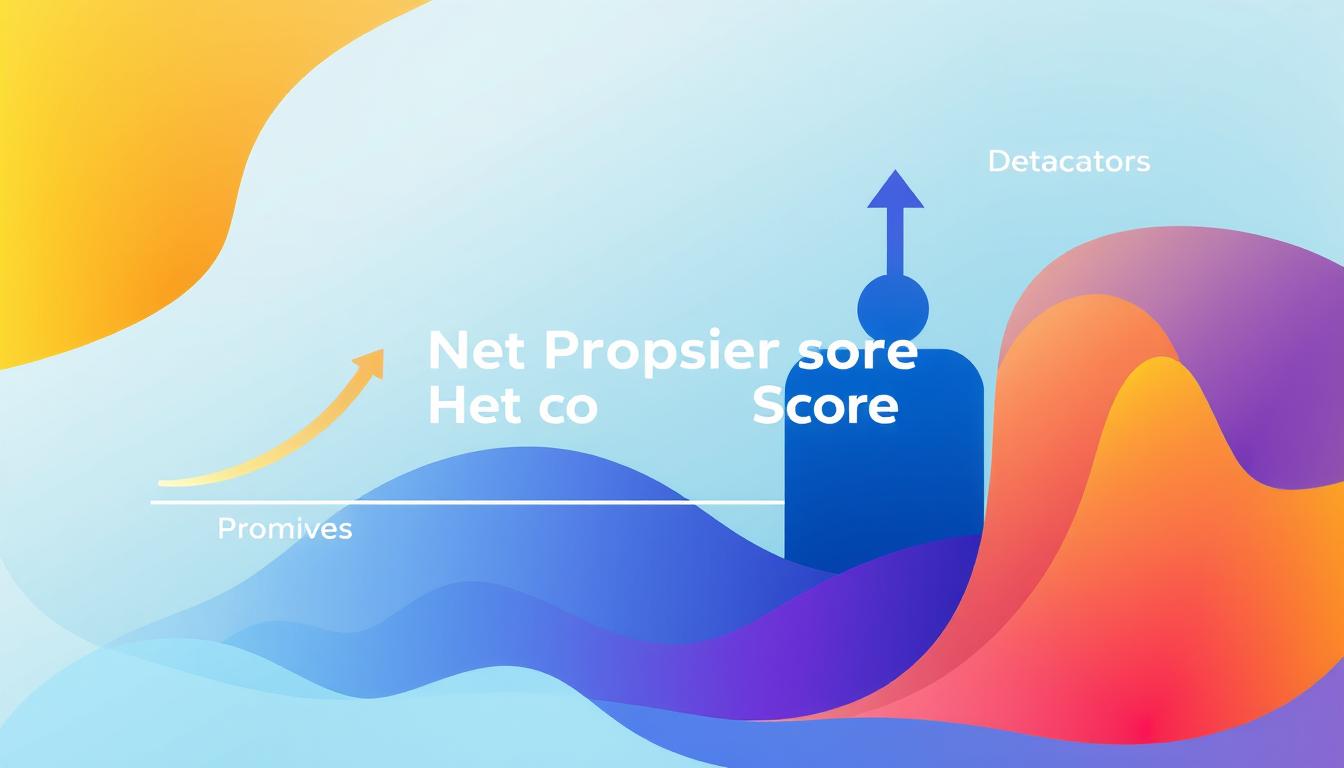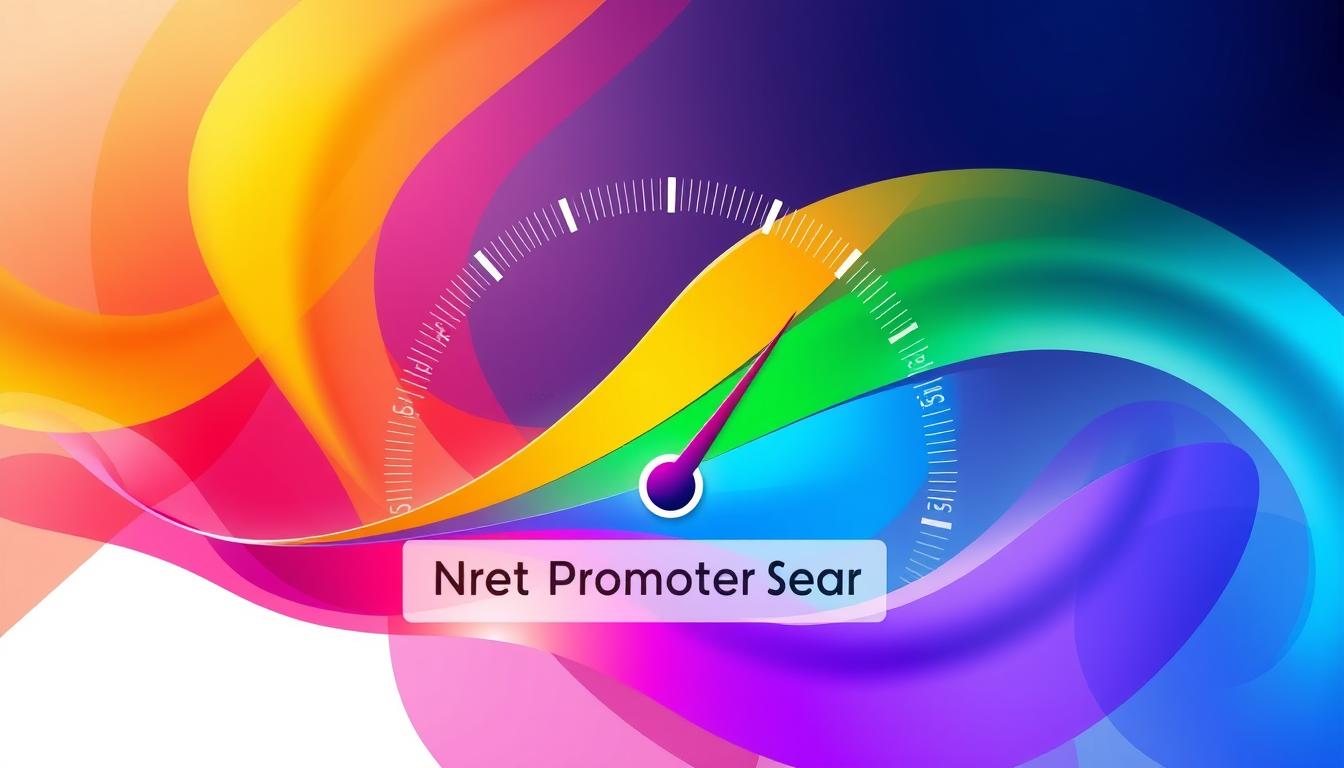The significance of the Net Promoter Score (NPS) for franchise owners cannot be overstated. In a competitive landscape like India, understanding customer sentiments and local market needs is paramount. NPS serves as an invaluable tool that equips us with the insights necessary to enhance customer loyalty, adapt our offerings to local preferences, and ultimately drive business growth. By leveraging the data collected from NPS surveys, franchise owners can make informed decisions that resonate with their targeted clientele, helping to solidify their position in the market.
Key Takeaways
- NPS is crucial for understanding local market insights.
- It significantly impacts customer loyalty in franchises.
- Regular NPS surveys help tailor offerings to local needs.
- Data-driven decisions enhance franchise growth.
- NPS helps franchise owners stay competitive in their markets.
Understanding NPS and Its Importance for Franchise Owners
The importance of NPS in the franchise market cannot be overstated. It serves as a vital measurement tool for franchise owners who seek to understand customer loyalty and satisfaction. Through this metric, we are able to gather valuable customer feedback that is essential in shaping our franchise business strategies. Understanding NPS helps us to identify customer sentiment, allowing us to respond effectively to the unique demands of our local market.
Utilizing NPS not only enhances our grasp of customer perceptions but also strengthens our competitive position. By analyzing NPS data, we can make informed decisions that align with the expectations of our audience. This proactive approach enables us to fine-tune our offerings, ensuring they resonate with customer preferences in a dynamic and evolving franchise market.
In conclusion, integrating the importance of NPS into our operations can be a game-changer. Emphasizing customer feedback fosters continuous improvement, empowering us to devise strategies that elevate our brand within competitive landscapes.
What is Net Promoter Score?
The Net Promoter Score (NPS) serves as a vital tool for assessing customer loyalty and satisfaction. By understanding the definition of NPS, we can appreciate its significance for businesses, especially franchises aiming to enhance local market engagement. This score, which ranges from -100 to +100, provides actionable insights into how customers perceive a brand and their likelihood to recommend it to others.
Definition and Origins of NPS
The origins of NPS can be traced back to 2003 when Fred Reichheld introduced it as part of his book, “The Ultimate Question.” This simple yet profound approach to measuring customer loyalty revolves around a single question: “On a scale of 0 to 10, how likely are you to recommend our company to a friend or colleague?” Respondents are categorized into promoters, passives, and detractors based on their scores. This classification offers a straightforward method to gauge customer sentiment, enabling franchises to identify areas for improvement.
How NPS Differs from Traditional Customer Feedback Methods
The NPS distinguishes itself significantly in the online feedback landscape. While traditional feedback methods often rely on long surveys and various questions, NPS streamlines the process, focusing on one key metric. This not only reduces the time customers spend providing feedback but also enhances response rates. By centering feedback around loyalty and recommendation, NPS encourages more meaningful insights into customer relationships compared to broader feedback methods.
The Role of NPS in Assessing Customer Loyalty
In the competitive landscape of franchise businesses, understanding customer loyalty is essential. We can utilize Net Promoter Score (NPS) as a powerful tool for assessing customer loyalty. Measuring customer satisfaction through NPS not only allows us to capture customer sentiments but also helps us to track changes over time. By leveraging this data, franchise owners can make informed decisions that directly impact their businesses.
Measuring Customer Satisfaction Through NPS
NPS offers a streamlined approach to measuring satisfaction. By asking customers a simple question about the likelihood of recommending a franchise, we can gauge their overall experience. The responses classify customers into promoters, passives, and detractors, providing a clear view of how our brand is perceived. This categorization assists us in identifying the factors influencing satisfaction, fostering improvements where necessary.
The Link Between NPS and Customer Retention
High NPS scores correlate strongly with customer retention rates. Loyal customers tend to have positive feelings towards our franchise, indicating they are likely to return. By focusing on understanding NPS results, we can create strategies aimed at enhancing customer loyalty, thereby directly influencing retention. This ongoing relationship not only benefits our franchise but also cultivates a community feeling among customers.
How NPS Surveys Uncover Local Market Insights
NPS surveys serve as a powerful tool for gathering essential local market insights. By focusing on the unique characteristics of our demographics, we can refine the design and questions of our surveys. This tailored approach not only aligns with the specific interests of our audience but also enhances the effectiveness of the feedback we receive.
Tailoring NPS Surveys to Specific Local Demographics
Understanding the diverse makeup of our local demographics allows us to create focused NPS surveys. By segmenting our audience based on age, income level, or cultural background, we can formulate questions that truly resonate. This method of demographic targeting fosters greater engagement and improves the quality of feedback, enabling us to capture insights that reflect genuine customer sentiments.
Identifying Trends and Preferences in Local Markets
Analyzing responses from NPS surveys provides a window into ongoing trends and preferences unique to our local markets. As franchise owners, we can detect shifts in consumer behavior, enabling us to stay ahead of market demands. By leveraging local market insights derived from our survey data, we position ourselves strategically to adapt and thrive in a competitive landscape.
A comprehensive approach to NPS surveys not only helps us gauge customer satisfaction but also uncovers valuable insights that propel our franchise’s growth. By continually refining our surveying methods, we can ensure that our offerings align with the evolving needs of the local market.
Integrating NPS Into Franchise Business Strategies
Integrating NPS into our franchise business strategies can offer significant advantages in understanding customer sentiment and improving our offerings. Establishing a routine NPS survey schedule is essential for consistently gathering feedback. Regularly timed surveys help in identifying trends over time, making it easier for us to respond to changing customer needs effectively.
Establishing a Routine NPS Survey Schedule
To effectively capture meaningful insights, we recommend implementing an NPS survey schedule that aligns with our business cycle. This periodic approach can include:
- Monthly surveys to track immediate customer experiences.
- Quarterly assessments for deeper insights into changing preferences.
- Annual reviews to evaluate long-term satisfaction and brand loyalty.
By maintaining a structured approach, we can not only adhere to integrating NPS but also ensure that our feedback remains relevant and actionable.
Using Feedback to Shape Local Marketing Efforts
The feedback gathered through our NPS survey schedule can directly enhance our local marketing strategies. Here’s how:
- Identifying customer champions: Discover who our most loyal customers are and leverage their testimonials in marketing campaigns.
- Addressing pain points: Quickly act on complaints to transform dissatisfied customers into promoters.
- Personalizing campaigns: Tailor marketing messages based on demographic insights and specific customer needs revealed by surveys.
Through these methods, we set the foundation for not only improving customer engagement but also building a stronger brand presence in local markets.

| Survey Frequency | Focus Area | Actionable Insights |
|---|---|---|
| Monthly | Customer Experience | Immediate feedback for operational improvements |
| Quarterly | Trends and Preferences | Identify shifting customer desires |
| Annually | Brand Loyalty | Evaluate overall customer satisfaction |
Net Promoter Score Measurement and Analysis
Understanding the intricacies of NPS measurement and analysis allows us to gain valuable insights into customer sentiment. By grasping how NPS scoring functions, we can effectively segment our customer base into three categories: promoters, passives, and detractors. Each of these groups provides unique information about customer loyalty, and their contributions are essential in shaping our business strategies.
Understanding NPS Metrics and Scoring
NPS scoring ranges from -100 to +100, offering a clear view of customer loyalty levels. Here’s how the segmentation works:
- Promoters (score 9-10): These loyal customers are likely to refer others and contribute positively to our brand.
- Passives (score 7-8): These customers are satisfied but not enthusiastic enough to recommend us.
- Detractors (score 0-6): This group may harm our brand through negative word-of-mouth, indicating areas for improvement.
The overall NPS is calculated by subtracting the percentage of detractors from the percentage of promoters. This simple formula provides a snapshot of our customer sentiment and can guide franchise owners in identifying areas for enhancement.
Key Performance Indicators to Track Alongside NPS
To gain a comprehensive understanding of our business health, we should monitor several KPIs with NPS. The following table outlines important metrics that complement our NPS analysis:
| KPI | Description | Relation to NPS |
|---|---|---|
| Customer Retention Rate | Percentage of customers who continue purchasing over a specific time period. | Higher NPS often correlates with better retention. |
| Customer Satisfaction Score (CSAT) | Measures customer satisfaction across various touchpoints. | CSAT feedback can explain NPS fluctuations. |
| Customer Lifetime Value (CLV) | Estimates total revenue expected from a customer over their relationship with us. | Promoters typically contribute higher CLV. |
| Referral Rate | Percentage of new customers gained through referrals. | Promoters are more likely to refer, impacting this KPI positively. |
Utilizing NPS Survey Platforms for Efficient Feedback Collection
In our quest for effective feedback collection, utilizing NPS survey platforms can significantly enhance our data-gathering efforts. These platforms simplify the process, allowing us to reach customers seamlessly while ensuring that our surveys remain engaging and easy to complete. By implementing reliable digital NPS tools, we can streamline not only the collection but also the analysis of feedback data.
The advantages of these dedicated NPS survey platforms are numerous. They provide various features tailored to improve customer engagement. Dynamic templates, customizable questions, and user-friendly interfaces encourage higher response rates, leading to richer insights. Integration with existing systems can further facilitate the collection process, making it easier to track performance over time.
Below is a comparative table showcasing some of the popular NPS survey platforms available for franchise owners:
| Platform Name | Key Features | Pricing | Ideal For |
|---|---|---|---|
| SurveyMonkey | Customizable templates, detailed analytics, multi-channel distribution | Starts at $25/month | Small to medium businesses |
| Qualtrics | Advanced analytics, integration with CRM tools, mobile-friendly | Contact for pricing | Large enterprises |
| Typeform | Interactive surveys, conditional logic, visual appeal | Free tier available, paid plans start at $35/month | Startups and growing companies |
| NPS Pride | Focused NPS metrics, benchmarking, real-time reporting | Customized pricing | Franchise owners |
Choosing the right NPS survey platform is essential for robust feedback collection. By aligning our chosen tools with our business goals and customer needs, we can capture feedback effectively, enabling data-driven decisions that empower our franchise’s growth and success.
How to Calculate NPS Effectively
Calculating the Net Promoter Score (NPS) may seem straightforward, yet accuracy is paramount for meaningful insights. We will walk through the essential steps in our NPS calculation guide, helping franchise owners confidently interpret their scores. Additionally, we will pinpoint common pitfalls in NPS that can skew results or lead to misinterpretation.
Step-by-Step Guide to Calculating Your Score
To calculate NPS effectively, we need to follow a structured process:
- Conduct Surveys: Gather data from your customers using an NPS survey. Ask the simple question: “On a scale from 0 to 10, how likely are you to recommend our franchise to a friend?”
- Classify Respondents: Categorize respondents into three groups based on their scores:
- Promoters (9-10): Loyal customers who are likely to refer others.
- Passives (7-8): Satisfied but unenthusiastic customers.
- Detractors (0-6): Unhappy customers who may discourage others from engaging.
- Calculate the Percentage: Determine the percentage of respondents in each category.
- Compute NPS: Use the formula:
NPS = % of Promoters – % of Detractors
Common Pitfalls in NPS Calculation
While calculating NPS, we should remain vigilant about potential pitfalls that can compromise our findings:
- Inadequate Sample Size: A small sample may not accurately reflect the broader customer base.
- Bias in Responses: If surveys are only sent to loyal customers, results will skew favorably.
- Ignoring Open-Ended Feedback: Questions inviting additional comments provide deeper insights and context.
- Inconsistent Timing: Collecting feedback at different times can lead to unreliable comparisons.
By carefully following our NPS calculation guide and steering clear of these pitfalls in NPS, we can ensure accurate and actionable insights that drive franchise growth.
Success Stories: Franchise Owners Leveraging NPS for Growth
Examining real-life examples reveals how franchise owners successfully utilize NPS to foster business growth. Through inspiring NPS success stories, we can identify effective strategies alongside the outcomes that stem from leveraging local market insights.
Case Studies of NPS Implementation
Numerous franchise businesses have adopted NPS to sharpen their focus on customer feedback. For instance, a popular coffee franchise implemented NPS surveys to gauge customer satisfaction and preferences, resulting in targeted marketing efforts. This approach allowed them to tailor their menu based on local tastes and elevate the customer experience significantly.
Results and Outcomes from Local Market Analysis
Franchise owners who adopted NPS reported remarkable improvements in customer retention and overall brand loyalty. The case studies highlight that those who actively utilized NPS data saw an average increase of 20% in franchise growth year-over-year. Enhanced understanding of local market dynamics empowered effective decision-making, leading to better service and product offerings.
Conclusion
In this NPS summary, we have explored how the Net Promoter Score serves as a vital tool for franchise owners striving to enhance local market understanding. The insights derived from NPS surveys can significantly impact our franchise growth strategies, allowing us to adapt products and services to meet the unique preferences of our local customers.
Furthermore, we have discussed the importance of integrating NPS into our business strategies. By embracing customer feedback, we cultivate a culture of loyalty and responsiveness, which can catalyze substantial growth. The data collected through NPS not only identifies areas for improvement but also highlights customer satisfaction levels, guiding us towards building stronger relationships with our customers.
Ultimately, leveraging NPS effectively empowers us to navigate the complexities of the franchise landscape. By continually assessing and responding to local market needs, we position ourselves for enduring success and enhanced customer loyalty. As the competitive landscape evolves, the role of NPS in informing our strategies will undoubtedly become more critical.
FAQ
What is the Net Promoter Score (NPS)?
The Net Promoter Score (NPS) is a customer loyalty metric that measures how likely customers are to recommend a business to others. It is calculated based on responses to a single question about the likelihood of recommending the brand on a scale of 0 to 10.
Why is NPS important for franchise businesses?
NPS is essential for franchise businesses because it provides valuable insights into customer loyalty and satisfaction. By understanding local market needs through NPS, franchise owners can enhance their customer engagement strategies and improve their overall business performance.
How can we tailor NPS surveys to specific demographics?
Tailoring NPS surveys to specific demographics involves designing questions that resonate with particular customer segments. This can include adjusting survey content and language to reflect local preferences and cultural nuances, maximizing the relevance and effectiveness of the feedback collected.
How often should we conduct NPS surveys?
It is recommended to establish a routine NPS survey schedule, conducting surveys quarterly or bi-annually. This frequency allows franchise owners to track customer sentiment changes over time and gather consistent feedback that can inform business decisions.
What should we look for in a good NPS survey platform?
A good NPS survey platform should offer user-friendly features, robust analytics, and customizable survey options. Additionally, it should facilitate easy distribution and collection of feedback while ensuring high response rates from customers.
What are the common pitfalls in calculating NPS?
How can we use NPS data to improve local marketing strategies?
NPS data can inform local marketing strategies by revealing customer preferences and sentiments. By analyzing feedback, franchise owners can adapt their marketing efforts to align with customer expectations, leading to more effective campaigns and increased customer loyalty.
Can NPS data predict customer retention?
Yes, high NPS scores are often correlated with higher customer retention rates. By monitoring NPS, franchise owners can identify loyal customers, allowing them to develop strategies aimed at retaining these valuable clients while addressing the needs of detractors.
How do we calculate our NPS score effectively?
To calculate your NPS, subtract the percentage of detractors (scores 0-6) from the percentage of promoters (scores 9-10). This can provide a clear insight into customer loyalty and engagement levels within your franchise.
What are some examples of successful NPS implementation in franchises?
Many franchises have successfully implemented NPS strategies by making data-driven decisions based on customer feedback. Examples include adapting products and services based on customer input and enhancing the customer service experience, leading to increased loyalty and growth.
Related Posts
- Using NPS to Measure SMB Success in Local Markets – NPS for Small and Medium Businesses (SMBs)
- How Small Businesses Can Use NPS Like Large Corporations
- How Telecom Providers Can Use NPS to Drive Innovation – NPS in Telecommunications
- Using NPS to Identify Key Opportunities in the Banking Sector – NPS and Financial Services






